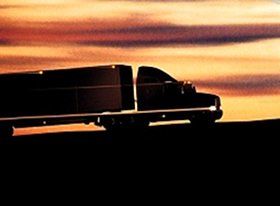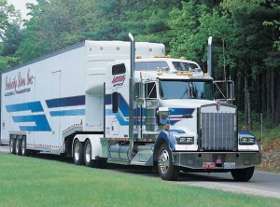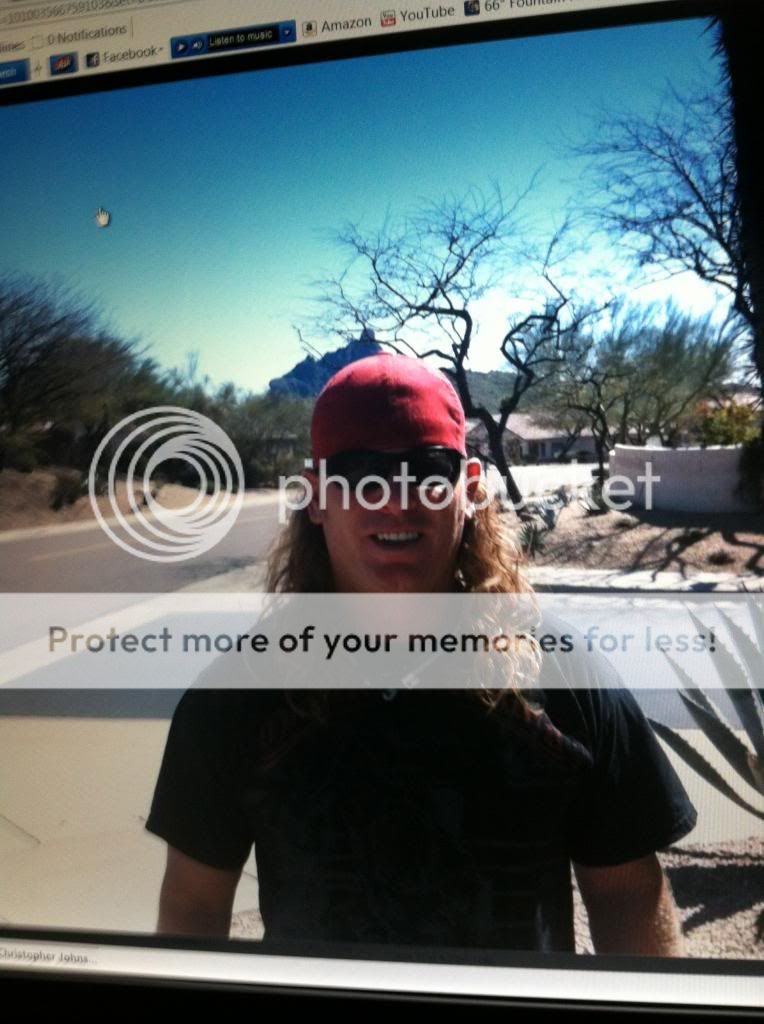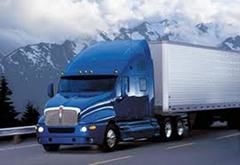Experience, Apathy, And Safety
Topic 10263 | Page 1

Experience should bring wisdom, but that's not an automatic. Wisdom comes from practicing what you've learned. That reminds me of what my grade school gym teacher used to say, "perfect practice makes perfect." Not just any practice will make perfect, and experience in itself doesn't make you a better driver. Experience can actually make a driver apathetic towards safety - letting one's guard down. If we as drivers don't continue to be vigilant with safety, stay alert, be aware of our surroundings, learn from our mistakes and the mistakes of others, we can become unsafe by becoming apathetic and complacent.
For me, a seasoned or wise driver is a safe driver. Yet, it's amazing how many 'experienced' drivers I see on the road that are anything but safe. The number one disregard I see for safety? Following too closely. It's sickening how many professional drivers tailgate each other, or worse yet, passenger vehicles. Proper following distance is so important. Anytime you tailgate, you're putting your career and life in the control of somebody else. All it takes is one time for that driver in front of you to jam the brakes.
For all the new drivers, or drivers that are about to get their CDL , don't become apathetic with safety. Keep that healthy fear and respect of your equipment, and the damage it could do. Driving too fast and not managing your space will eventually lead to an accident - possibly the death of somebody. It's like playing Russian roulette. Don't feel like you HAVE to do the speed limit. Conditions can and will dictate your speed, not just a speed limit sign. Drive within your field of vision. If you're coming up to a bend, slow it down, you don't know what's on the other side around that corner. If you're on a highway that's posted at 70 mph, and yet traffic only lets you go 60 in order to maintain that space cushion, do 60 mph. Let cars come in front of you, and back off. A pro makes up for the stupidity of other drivers. I've heard drivers complain that if they let drivers cut in front, then they'll never get to their destination - that's baloney. I let drivers weave in and around my space in thick NYC metro traffic, and I wind up getting on down the road in the same amount of time. As a professional driver, you have to become emotionally detached, not allowing yourself to get angry. Patience is a must.
Don't become an unsafe experienced driver.
The second I feel I am too good or become too comfortable...... I would turn in my keys.
Also.... Sent you a few pms now. Sorry if it seemed like I was bothering you. Just know you went through same school I am starting.
CDL:
Commercial Driver's License (CDL)
A CDL is required to drive any of the following vehicles:
- Any combination of vehicles with a gross combined weight rating (GCWR) of 26,001 or more pounds, providing the gross vehicle weight rating (GVWR) of the vehicle being towed is in excess of 10,000 pounds.
- Any single vehicle with a GVWR of 26,001 or more pounds, or any such vehicle towing another not in excess of 10,000 pounds.
- Any vehicle, regardless of size, designed to transport 16 or more persons, including the driver.
- Any vehicle required by federal regulations to be placarded while transporting hazardous materials.
OWI:
Operating While Intoxicated

Not getting your pms.

Experience should bring wisdom, but that's not an automatic. Wisdom comes from practicing what you've learned. That reminds me of what my grade school gym teacher used to say, "perfect practice makes perfect." Not just any practice will make perfect, and experience in itself doesn't make you a better driver. Experience can actually make a driver apathetic towards safety - letting one's guard down. If we as drivers don't continue to be vigilant with safety, stay alert, be aware of our surroundings, learn from our mistakes and the mistakes of others, we can become unsafe by becoming apathetic and complacent.
For me, a seasoned or wise driver is a safe driver. Yet, it's amazing how many 'experienced' drivers I see on the road that are anything but safe. The number one disregard I see for safety? Following too closely. It's sickening how many professional drivers tailgate each other, or worse yet, passenger vehicles. Proper following distance is so important. Anytime you tailgate, you're putting your career and life in the control of somebody else. All it takes is one time for that driver in front of you to jam the brakes.
For all the new drivers, or drivers that are about to get their CDL , don't become apathetic with safety. Keep that healthy fear and respect of your equipment, and the damage it could do. Driving too fast and not managing your space will eventually lead to an accident - possibly the death of somebody. It's like playing Russian roulette. Don't feel like you HAVE to do the speed limit. Conditions can and will dictate your speed, not just a speed limit sign. Drive within your field of vision. If you're coming up to a bend, slow it down, you don't know what's on the other side around that corner. If you're on a highway that's posted at 70 mph, and yet traffic only lets you go 60 in order to maintain that space cushion, do 60 mph. Let cars come in front of you, and back off. A pro makes up for the stupidity of other drivers. I've heard drivers complain that if they let drivers cut in front, then they'll never get to their destination - that's baloney. I let drivers weave in and around my space in thick NYC metro traffic, and I wind up getting on down the road in the same amount of time. As a professional driver, you have to become emotionally detached, not allowing yourself to get angry. Patience is a must.
Don't become an unsafe experienced driver.
Thank you for this post. As a new driver, I have been more frightened by the driving of other truckers than I have of erratic car drivers. I expect car drivers to cut me off, not know how to merge, and make sudden stops. But I find myself cursing more at truckers who cut you off and then slow down, tailgate, and try to race you when they see you trying to pass them. I know I am new, and I have had truckers help me too while I am in traffic(especially when I am changing lanes), but the aggressive driving of truckers is really scary.
CDL:
Commercial Driver's License (CDL)
A CDL is required to drive any of the following vehicles:
- Any combination of vehicles with a gross combined weight rating (GCWR) of 26,001 or more pounds, providing the gross vehicle weight rating (GVWR) of the vehicle being towed is in excess of 10,000 pounds.
- Any single vehicle with a GVWR of 26,001 or more pounds, or any such vehicle towing another not in excess of 10,000 pounds.
- Any vehicle, regardless of size, designed to transport 16 or more persons, including the driver.
- Any vehicle required by federal regulations to be placarded while transporting hazardous materials.
OWI:
Operating While Intoxicated

Good post 6 string

When I trained with my first company, the trainer was pretty good in his training regimen and taught me good stuff that works for being safe, finding parking, and various things learned from experience. Since then, I've driven local and moved to take another OTR position. I've gone out with a couple other guys who weren't quite the best "trainers". Things like "You can speed through here" and other such nonsense. I just said "Thanks for the heads up" and promptly put that where dinner would soon end up. After years of highly dangerous military experiences, I place trucking right where I placed handling explosives and planning night raids. The potential for disaster is high, and good planning goes a long way.....but responsible conduct is the huge factor that makes things work. No one can engineer hazards out of your job entirely, that's why accidents are called accidents, and not "on purpose", though negligence is an apt descriptor when someone fails to do something. Apathy and complacency tend to catch up to the ones that get too comfortable or too confident. I've seen people narrowly escape disaster already in my very short driving career, truckers and cars alike. Impatience and carelessness seem like the root causes for most major crashes that I am seeing. Ultimately, just slowing down and knowing that two minutes will not make a major difference in your life could save a major incident and make a much better driving experience. Just my thoughts though.
OTR:
Over The Road
OTR driving normally means you'll be hauling freight to various customers throughout your company's hauling region. It often entails being gone from home for two to three weeks at a time.
OWI:
Operating While Intoxicated
New Reply:
New! Check out our help videos for a better understanding of our forum features

















Preview:








 TT On Facebook
TT On Facebook
Experience should bring wisdom, but that's not an automatic. Wisdom comes from practicing what you've learned. That reminds me of what my grade school gym teacher used to say, "perfect practice makes perfect." Not just any practice will make perfect, and experience in itself doesn't make you a better driver. Experience can actually make a driver apathetic towards safety - letting one's guard down. If we as drivers don't continue to be vigilant with safety, stay alert, be aware of our surroundings, learn from our mistakes and the mistakes of others, we can become unsafe by becoming apathetic and complacent.
For me, a seasoned or wise driver is a safe driver. Yet, it's amazing how many 'experienced' drivers I see on the road that are anything but safe. The number one disregard I see for safety? Following too closely. It's sickening how many professional drivers tailgate each other, or worse yet, passenger vehicles. Proper following distance is so important. Anytime you tailgate, you're putting your career and life in the control of somebody else. All it takes is one time for that driver in front of you to jam the brakes.
For all the new drivers, or drivers that are about to get their CDL , don't become apathetic with safety. Keep that healthy fear and respect of your equipment, and the damage it could do. Driving too fast and not managing your space will eventually lead to an accident - possibly the death of somebody. It's like playing Russian roulette. Don't feel like you HAVE to do the speed limit. Conditions can and will dictate your speed, not just a speed limit sign. Drive within your field of vision. If you're coming up to a bend, slow it down, you don't know what's on the other side around that corner. If you're on a highway that's posted at 70 mph, and yet traffic only lets you go 60 in order to maintain that space cushion, do 60 mph. Let cars come in front of you, and back off. A pro makes up for the stupidity of other drivers. I've heard drivers complain that if they let drivers cut in front, then they'll never get to their destination - that's baloney. I let drivers weave in and around my space in thick NYC metro traffic, and I wind up getting on down the road in the same amount of time. As a professional driver, you have to become emotionally detached, not allowing yourself to get angry. Patience is a must.
Don't become an unsafe experienced driver.
CDL:
Commercial Driver's License (CDL)
A CDL is required to drive any of the following vehicles:
OWI:
Operating While Intoxicated